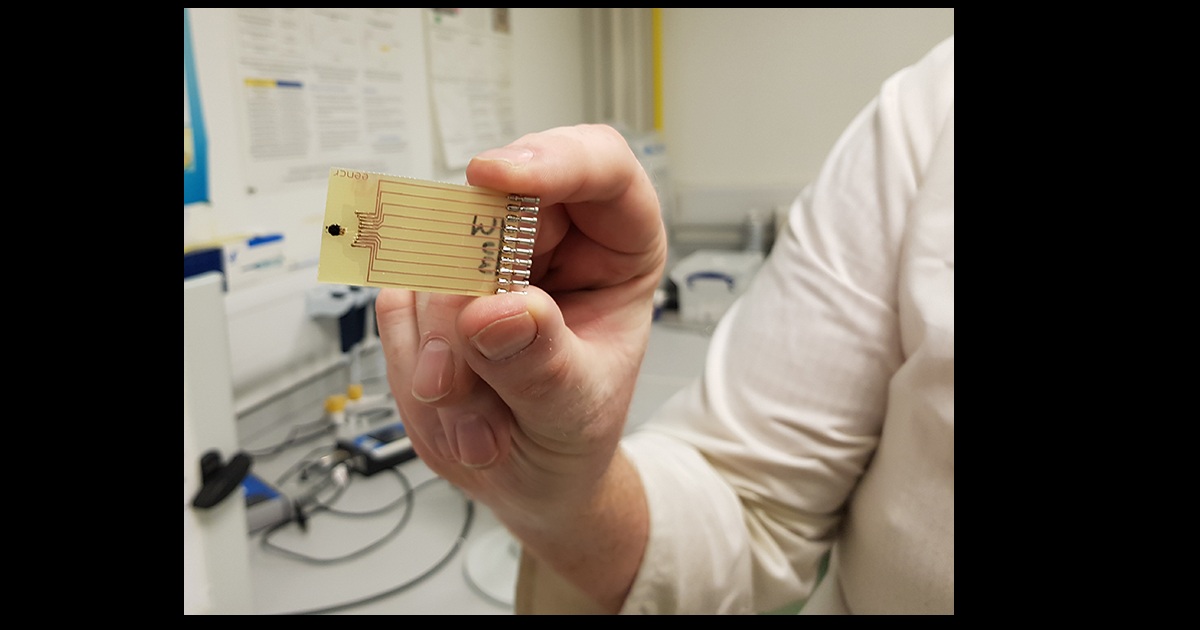Sensor Detects Sepsis Biomarker in Less Than Three Minutes
Medgadget | February 26, 2019

Fulminate sepsis is a dangerous condition, usually caused by a bacterial infection. The runaway behavior of the immune system in sepsis is still poorly understood. The trick is to diagnose it early and to use antibiotics to fight it off. These days it can take up to three days to diagnose sepsis, usually via a blood culture, which is one of the primary reasons that it is one of the main causes of death inside of hospitals. Researchers at the University of Strathclyde in Scotland have developed a sensor that can detect a common sepsis biomarker in a matter of minutes. Interleukin-6, a glycoprotein, is typically released by patients suffering from sepsis, but its detection at the point of care has been difficult to achieve. The Strathclyde team developed a biosensor that uses a microelectrode to detect interleuikin-6 within a small blood sample. It takes less than three minutes for the device to provide results, allowing clinicians to take immediate action if the test shows up positive. The microelectrodes are positioned on a substrate that has needle-like protrusions. They are able to not only detect but to measure the concentration of interleukin-6, which would allow for the monitoring of disease progression.